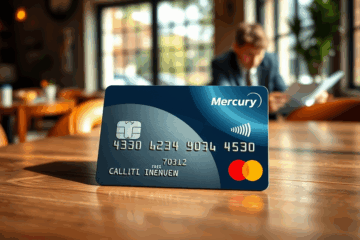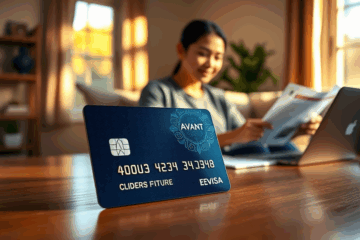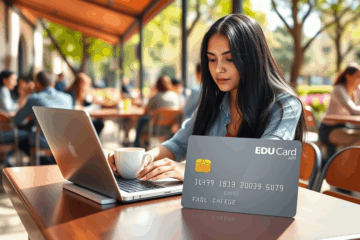How to Get a Credit Card Without Bank Account
Credit Card access is often associated with the necessity of having a bank account, but that’s not always the case.
In this article, we will explore how you can obtain a credit card without a traditional bank account.
We will delve into the factors that financial institutions consider when evaluating applicants, the online application process, and the identification and security deposit requirements.
Additionally, we will look at prepaid card options, providing a comprehensive guide to help you navigate the world of credit cards without the need for a bank account.
Paths to a Card When You Have No Bank Account
Seeking a credit card without a traditional bank account often stems from various personal needs and situations.
Many individuals, such as freelancers and those working in the gig economy, experience irregular income streams, making it challenging to maintain a standard checking account.
Moreover, international students and tourists may find themselves seeking financial flexibility without the need to establish a local bank account.
For some, privacy concerns also play a pivotal role.
By avoiding bank accounts, they limit the amount of personal financial information shared with multiple institutions.
An additional consideration includes individuals with an unstable credit history who may face difficulty opening an account but find more lenient approval standards for credit cards accessible, as noted by ZET’s explanation of credit card options.
Thus, the option for a credit card without traditional bank commitments becomes not just a convenience but a necessity.
Confirming the feasibility of acquiring a credit card without a bank account is equally important.
Many financial institutions now accommodate these needs by offering prepaid cards and secured cards that require a security deposit.
These alternatives, highlighted by Fi Money’s guide, often bypass the need for a traditional credit history or bank setup, offering flexibility in repayments and opening pathways for financial independence.
It’s also possible to apply for credit cards online simply by providing necessary identification and sometimes offering a deposit for secured cards.
With today’s digital conveniences, not only is it possible to secure a credit card without needing a checking account, but it’s becoming an increasingly viable option for many seeking financial flexibility in a rapidly changing world.
Card Options Accessible Without Checking Accounts
Navigating the world of credit cards without having a bank account can be challenging but also opens up diverse options.
Understanding the various categories of cards available, such as prepaid cards, secured credit cards, and retail store cards, is essential for individuals seeking financial tools without traditional banking.
Each type comes with unique requirements, credit-building potential, and costs that can influence an applicant’s decision.
Prepaid and Secured Choices
Prepaid and secured credit cards present unique financial solutions for non-bank-account holders.
A prepaid card, as detailed by Visa Prepaid Cards, allows users to load money in advance, acting like a debit card without linking to a bank account.
This functionality provides ease of use for making payments without credit checks.
Meanwhile, a secured credit card requires an initial deposit, essential for covering the credit limit.
According to Capital One on secured vs. prepaid cards, once established, these cards report to credit bureaus, helping build a credible credit history over time.
When comparing the two, prepaid cards offer uncomplicated access, whereas secured cards provide a path to establishing creditworthiness.
This enables individuals without access to traditional banking to manage finances better.
The role of a deposit in secured credit cards is integral, often matching the credit limit set for the user, functioning as a safety net for lenders.
Though initially challenging, the structured spending leads to improved credit scores if managed responsibly.
Financial institutions like SoFi highlight how these cards enable greater access to credit, transforming preliminary deposits into meaningful benefits.
As a result, securing a card with a deposit not only strengthens accountability but also opens opportunities for enhancing personal financial profiles by connecting positive usage patterns to credit histories effectively.
Store and Fintech Issuer Cards
Store credit cards offer shoppers the ability to purchase from specific retailers without requiring a bank account.
Relevant restrictions include limited acceptance to the issuing store or its affiliates, making the card less versatile.
Despite these constraints, they can provide rewards, discounts, and tailored financing options, enhancing shopping experiences.
Meanwhile, modern fintech solutions like prepaid and secured cards from companies like PayPal offer greater freedom.
These cards, accessible without a banking relationship, focus on broader acceptance and minimalistic entry hurdles.
They often consider factors like employment status and credit rating, ensuring inclusion but also imposing spending limitations to manage risks effectively.
Eligibility Rules and Required Paperwork
Obtaining a credit card without a bank account calls for understanding specific eligibility requirements and preparing necessary documentation.
Financial institutions primarily consider identity proof, a security deposit, and income verification.
Relevant text: As part of the application, you must submit proof of your identity, which might encompass documents like a passport or a driver’s license.
In addition, having a traceable income can prove your ability to manage credit responsibly.
It’s crucial to demonstrate steady employment and salary slips or tax returns to aid in the income verification process.
Furthermore, some credit issuers may require a security deposit as a form of assurance, which effectively sets your initial credit limit and minimizes their risk.
To ensure a seamless application, accurately compile all the necessary documents.
Typically, you would prepare the following:
- Government ID
- Salary Slips or Tax Returns
- Utility Bills for Address Proof
- Security Deposit Payment Proof
Providing thorough documentation helps streamline the eligibility process for acquiring a credit card, enhancing your chances of approval even without a bank account.
For further understanding, consider checking detailed guidelines provided by financial entities like Axis Bank.
Step-by-Step Online Application Guide
Begin by researching and selecting a financial service that offers credit cards without requiring bank accounts.
Options such as Fi Money provide resources that cater to these needs.
Relevance lies in finding a provider that accepts alternative financial criteria, such as your credit score, employment status, and personal identification.
Ensure your mobile number is active and registered to receive necessary OTPs for verification.
Proceed with the application by following this structured process:
- Select your preferred credit card issuer
- Complete the application form accurately, supplying all required personal details
- Upload necessary identification, which may include a government-issued ID
- Submit your application and patiently await approval
It’s crucial to ensure your data security throughout this process by maintaining privacy and scrutinizing the website’s security features like HTTPS in the address bar.
Once the application is submitted, most issuers, like the openSky® Plus Secured Visa® Credit Card from WalletHub, provide real-time status updates.
Relevant notifications are typically sent via email or SMS, keeping you informed of your application’s progression.
If the approval process seems prolonged, contacting customer service can expedite inquiries about your application status.
Following approval, expect guidance on activating your card and securely using it for transactions, reinforcing the importance of secure data handling to protect your financial information.
Using and Managing Your New Card Responsibly
To effectively manage a credit card obtained without a bank account, prioritize on-time payments to avoid late fees and potential damage to your credit profile.
Setting up reminders or automatic payments ensures you stay on track, helping you maintain a positive credit score.
Additionally, keeping a close eye on your expenses helps you stick to a responsible budget, ensuring you don’t spend beyond your means.
This method of closely tracking spending habits allows you to avoid falling into a debt cycle and instead leverage your card for financial growth.
Being mindful of fee awareness is crucial when using your new card.
Carefully reviewing your statement each month helps you identify and understand any fees that you may incur, such as foreign transaction fees or annual charges.
Moreover, regular credit monitoring enables you to catch discrepancies or potential fraudulent activities early, safeguarding your financial reputation.
A proactive approach to monitoring aligns you with long-term financial security, ensuring your credit profile remains in good standing.
For more tips on managing credit responsibly, consider visiting resources like Chase Bank’s guide on effective credit card management for comprehensive advice on maintaining healthy credit habits.
In conclusion, obtaining a credit card without a bank account is not only possible but also accessible through various options.
By understanding the requirements and exploring alternatives like prepaid cards, you can effectively manage your financial needs.



0 Comments